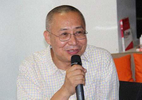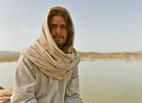The English version of Meditations on the Birth of Christ: Reflections for Advent in the Context of Chinese Culture, written by You Bin, was released by Resource Publications on May 21.
The book provides a three-week Advent meditation plan consisting of 21 topics, leading readers into ancient Bethlehem in a spiritual sense to contemplate the significance of the incarnation for the past, the future, and the present.
The book is made up of three sections, “Christ Born into History”, “Christ Born into the World” and “Christ Born into Us”. Each devotional piece starts with Bible verses and thought-provoking questions, which are followed by a meditation that explores deeper into the verses, and ends with prayers. In the main meditation part, apart from reflecting on Scripture, the author also draws on classic Christian thinkers and engages with Chinese philosophers and thinkers to provide a trans-cultural understanding of Jesus’ incarnation, encouraging readers to form a God-centred life.
You Bin is Professor of Religions at Minzu University of China (Beijing, China), where he directs the Academy of Religions and leads research projects on Comparative Scripture and Interreligious Dialogue. He is the author of Introduction to the Hebrew Bible (2007), Social Memory and Ethnic Construction of Ancient Israel (2011), Chinese Catechism on the Apostles' Creed, Lord's Prayer, and Ten Commandments (2018-2020), Religions of Beijing (2020).
David F. Ford, Regius Professor of Divinity Emeritus at University of Cambridge, commented in his foreword, “The meditations in this book show Professor You Bin being deeply and wisely Christian, and they will be a precious gift not only to his fellow Christians but also to anyone else who wants to appreciate better what it can mean to be Christian in the twenty-first century.”












